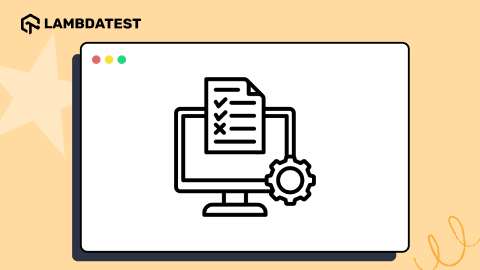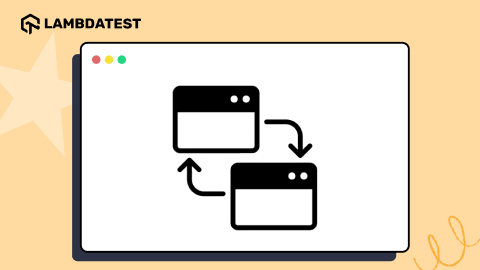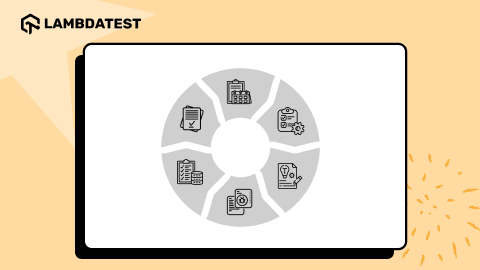16 Free Resources For Cross Browser Compatible Web Development
Arnab Roy Chowdhury
Posted On: October 11, 2018
![]() 19475 Views
19475 Views
![]() 6 Min Read
6 Min Read
Web development has never been the way it is currently. With more than hundreds of open source tools, libraries, and frameworks, along with lots of online tutorials, one can easily get started and very soon become a successful web developer. Although, irrespective of how big or small your webapp is, you cannot afford to neglect browser diversity. No matter what your target audience is, you should always aim to develop a website that is cross browser compatible. In this article, we shall discuss 16 free resources that are extremely helpful for a beginner as well as an advanced web developer for creating a cross browser compatible website or web application.
1. Node.js
Built around the latest v8 engine of Chrome, Node.js is an open-source JavaScript-based framework that runs across multiple platforms. Initially released for Linux in 2009, Node JS is the perfect based framework for developing single-page web applications.
2. Bootstrap
This framework is based on HTML, CSS, and JavaScript. Designed in 2011, it is the most used framework for developing responsive websites with accelerated page loading speed.
Related Post: Top 10 Bootstrap Themes
3. AngularJS
Developed by Google in 2012, Angular JS, commonly known as Angular is the most popular framework based on JavaScript to date. It is ideal for developing dynamic single page web applications that help to update your site based on the changes made in data.
Related Post: Angularjs: A Developer’s First Choice
4. React JS
Released in 2013 by Facebook and maintained by a community of users and developers, React is ideal for developing single-page web and mobile applications. Just like Angular, it is also based on a component-driven structure.
Related Post: Choosing the right JavaScript framework in 2018
5. Backbone.JS
This is also a JavaScript library that works based on the Model View Presentation framework. Released in 2016, it uses JavaScript along with RESTful web APIs, this framework has become quite popular due to being lightweight and its sole dependency on JavaScript.
6. Brackets
Developed using CSS, HTML, and Javascript. It is an open-source lightweight text editor meant for web development. Designed by Adobe, the tool is platform-independent and licensed by MIT. Are you fond of Brackets? If you are, then here are some of the most useful Brackets extension to use when coding.
7. Django
Based on Python and following the model-view-template architectural pattern, Django is an open-source framework that makes developing a rapid and clean design. The framework is developed and maintained by the Django foundation, a non-profit organization.
8. Ember.js
This is another open-source framework that is based on Model-view-viewmodel(MVVM) architecture. It was released in 2011 and has been a favorite among many developers since it allows scalable web application development by incorporating the latest ECMA 6 script and standard web development practices.

9. npm
npm is a package manager used for programming in JavaScript. When you are using Node JS, it is the default package manager. It consists of an online database of packages and also contains a command-line client. Consisting of reusable packages, npm is the largest software registry in the world.
10. Git
Git is not related to development. It is a tool for maintaining version control using which you can track the changes made in your code. If some defect occurs in your code that is almost impossible to fix, Git can be used to go back to the previous version and undo the changes. For web development, version control is highly essential and Git is the best tool available in the industry.
11. Foundation
The responsive design got a whole lot better with the introduction of the Foundation. It is a group of frameworks using which, one can design beautiful templates, apps, websites, and emails that are fully responsive. The best feature of Foundation is that, its flexible, semantic and completely customizable with new resources being added regularly.
12. Ruby
Developed in the middle of 1990 by Yukihiro Matsumoto in Japan, Ruby is an effective and dynamic programming language that focuses on productivity and simplicity. It follows the model view controller pattern and provides everything needed to create a web application packed with the database.
Related Post: Top Programming Languages Helpful For Testers
13. Grunt
Grunt is a task runner based on JavaScript. Frequent tasks like code compilation, minification, linting as well as unit testing are performed by it. One can use Grunt by using a command-line interface and execute custom tasks that are defined in a file. It is distributed via npm and written in Node JS. To date, the Grunt ecosystem contains more than 5000 plugins that make web development easier and faster.
14.Webpack
Webpack is an open source bundler based on JavaScript. The main purpose of Webpack is to bundle JavaScript files that can be later, used in the browser. It also has the capability to transform and bundle any resource or package. Released in 2012, Webpack generates static assets that are dependent on the modules on which it is worked.
Related Post: Using Webpack 4 to Create Browser Compatible Apps
15. Bable.js
Babel is a transpiler and a brilliant one indeed. It converts incompatible source code or the library functionality into browser supported code which your browser may find compatible. Transpilers are often mistaken for compilers, but they are a bit different. They work on the source code and return a more sturdy compatible source code only. Developers can even customize Babel to suit them better.
Related Post: Write Browser Compatible JavaScript Code using BabelJS
16. Modernizr
Modernizr that can efficiently solve challenges faced in cross browser web development and based on test case scenarios, conditionally load JS or CSS files. Modernizr detects the CSS3 and HTML5 features supported by the browser of the end-user. Modernizr introduces Feature Detection. That will check whether the browser supports the code and gives you a “false” or “true” result.
Related Post: Developing Cross Browser Compatible Web Apps With Modernizr
The above-mentioned list is not based on ranking or popularity. Apart from these, there are endless resources that will help you create a robust and fully responsive web application. So, hurry up, choose your pick and get started in the amazing domain of the world wide web.
Got Questions? Drop them on LambdaTest Community. Visit now














